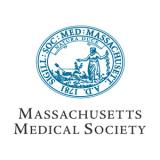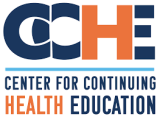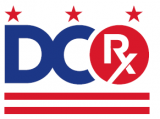Navigating Power Differentials as a Physician in the “Me Too” Era

With a documented rise in reports of sexual harassment and inappropriate sexual behavior across medical specialties in the workplace, it is important for physicians and medical leaders to be aware of the prevalence of problematic sexual behavior in physicians.
Category
Format
- Self-study / Enduring
Credits
- 1.00 MOC II
- 1.00 AMA PRA Category 1 Credit™
Sexual Assault and Domestic Violence Continuing Education for Massachusetts Clinicians: Identification, Assessment, Response, and Prevention

This continuing education course meets the Massachusetts Department of Public Health approved Chapter 260 Training and Education in Sexual and Domestic Violence.
Category
Format
- Self-study / Enduring
Credits
- 3.00 MOC II
- 3.00 ABMS MOC II
- 3.00 AMA PRA Category 1 Credit™
TeleMental Health Patient Practitioner Protocol

This course reduces risk and provides education and competency to meet regulatory and licensure requirements for practitioners providing telemental health services to patients while integrating appropriate patient and practitioner communication.
Category
Format
- Self-study / Enduring
Credits
- 2.25 AMA PRA Category 1 Credit™
Implicit Bias in Health Care

The role of implicit biases on healthcare outcomes has become a concern as some cite that implicit biases contribute to health disparities, professionals' attitudes toward and interactions with patients, quality of care, diagnoses, and treatment decisions.
Category
Format
- Self-study / Enduring
Credits
- 3.00 MOC
- 3.00 Approved Continuing Education (ACE)
- 3.00 ACPE Pharmacy
- 3.00 AMA PRA Category 1 Credit™
- 3.00 ANCC
- 3.00 Association of Social Work Boards (ASWB)
NON-OPIOID AND ALTERNATIVE APPROACHES TO PAIN

This module summarizes evidence on the use of exercise, acupuncture, spinal manipulative therapies, herbs, dietary supplements and other complementary approaches for pain. Discusses how to use NSAIDs most effectively to treat pain and prevent acute pain from becoming chronic pain.
Category
Format
- Self-study / Enduring
Credits
- 1.50 AMA PRA Category 1 Credit™
Medical Ethics for Physicians

Medical ethics, also known as bioethics, is an amalgam of medicine, law, and religion. It is also influenced by cultural beliefs. In this course, we will define the most common ethical principles and note their relationship to the basic theories of ethics.
Category
Format
- Self-study / Enduring
Credits
- 5.00 AMA PRA Category 1 Credit™
Domestic and Sexual Violence

Victims of domestic and sexual violence suffer emotional, psychological, and physical abuse, all of which can result in both acute and chronic signs and symptoms of physical and mental disease, illness, and injury.
Category
Format
- Self-study / Enduring
Credits
- 5.00 AMA PRA Category 1 Credit™
- 5.00 Association of Social Work Boards (ASWB)
Setting Ethical Limits: For Caring and Competent Professionals

Without proper self-care, boundaries, and awareness (transference), therapists become vulnerable to burnout and vicarious traumatization. This can result in a risk of therapeutic effectiveness, loss of trust with clients, and possible ethical crossings or violations.
Category
Format
- Self-study / Enduring
Credits
- 6.00 Approved Continuing Education (ACE)
- 6.00 Association of Social Work Boards (ASWB)
Human Trafficking and Exploitation

Today, some label human trafficking as a form of "modern day slavery," and frequently, human trafficking has been linked to sex work and prostitution, although there are other forms of trafficking, such as forced labor and domestic work.
Category
Format
- Self-study / Enduring
Credits
- 5.00 MOC
- 5.00 Approved Continuing Education (ACE)
- 5.00 AMA PRA Category 1 Credit™
- 5.00 Association of Social Work Boards (ASWB)

 Facebook
Facebook Twitter
Twitter LinkedIn
LinkedIn Forward
Forward